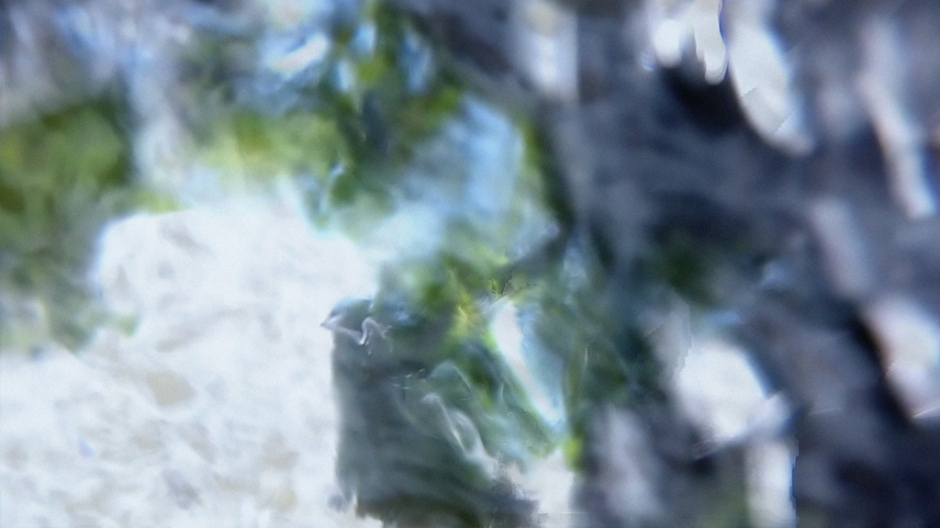It’s Not The Work, It’s The Journey That Kills You
i
It all came to a halt the day of his accident ̶
a factory-shut Saturday, machines and men on standby,
the weekday workers nursing sick heads
over soccer fixtures, the form of horses,
except for my father
who, in the brightness of that Tralee morning,
asked if I’d keep him company on a job.
I was his eight-year-old apprentice,
all terrible fringe and polyester tracksuit.
His talk was mechanics, pistons and crankshafts.
Back then, his body held the logic
of a complete circuit.
He loved to quiz me.
Name the terminals of a diode?
Is it anode and cathode, Dad?
He gave me my own little snippers to strip flex,
taught me to feel for when the casing gave,
how to twist my wrist just so, never slash through the wiring.
cut only as much as is needed, be careful, he said,
think of them as veins –
the live brown, yellow/green earthed two tone,
single reds and blues,
oxygenated and deoxygenated.
ii
I’d wait at the gate to see him
turn into the Avenue at six,
blood blisters under his nails,
grease in the cut valleys of his hands,
all delicate strength, precise application,
always a kiss for my mother.
We would have driven that Saturday,
even though it was 300metres at most,
out the Avenue, up the Rock, left after Urban Terrace.
He would have had his tools that day ̶
the blue steel box from AnCO, his New York hammer,
cases of spanners, his various spools of cable,
tidy in the boot of his Granada.
iii
The musician had quoted him in the inlay of his album ̶
It’s not the work, it’s the journey that kills you
a conversation between two Avenue boys
who took the boat at different times,
with only one returning,
their hop-ball kept to blue-moon phone calls,
cassette sleeves, later, a signed Roy Rodgers
on the wall of the small sitting room,
for my friend Tom, from your friend Christie
iv
Their widows exchange messages now.
One heard weeks too late.
She sent white roses.
v
That day, when we arrived to check the roof tank,
the factory was deadbolted, all ladders locked inside.
I kicked around the delivery slipway,
airborne shrapnel rippling out into the derelict green
between St Brendan’s Park and Connolly,
those spaces that terrified me at night,
how the blackness would spark
with the blaze
of contraband teenage cigarettes.
Back then, rebellion was all smoking;
drinking was for the dole queue men,
their worn denim jeans, sunken, sallow faces,
their parched mouths shaping around the same few stories
of Kilburn high road, the sites and pubs of Derby,
over weekday pints in the Pig and Whistle.
vi
I was eight, so rather than witness my father triangulate
his method of moving from one elevation to another,
I watched the Gallowsfield boys tussle over a football,
their dancing feet and sly-dig hands.
I tracked the woman who cut a quick cross along the dirt track,
hauling the usual two bags of messages from Dunnes or Barry’s shop.
She could have been any of the Balloonagh girls’ mothers.
vii
Dawdling in the piles of offcuts and packaging,
I heard my name called
down from a height,
his big wave,
his castle king vantage.
Back down he scrambled,
he said the tank is slow to fill.
Why his job was to keep a ballcock’s eye,
I’ll never understand.
We’d plot the course together once more
before my child patience ran out
and I begged to stay at home.
I remember he wasn’t happy
with me when he left.
viii
I can’t recall the whereabouts of my mother.
Where was Maureen? Sean Óg?
The afternoon shifts
from my spot on the living room carpet
to the phone ringing,
the tearing of a noise from a throat,
an ambulance screaming across Brewery Road,
its urgency sailing up over the graveyard
and in through our open back windows.
ix
I learned later (I don’t know when)
that he had shinned up one more time,
a wooden crate, corrugated iron gate,
to the flat roof and the filling tank waiting.
I wasn’t there when the crate splintered away,
when the furrow of the gate tore the heart
of his wrist and sliced his palm clean.
I wasn’t there when the stranger tethered his flesh
with a belt.
I never saw the signs of his pain on the slipway.
x
I learned the meaning of words like “severed,”
had trusted my sister’s black biology text book
to explain the function of an “artery”.
He was gone a long time.
My mother would ring from the hospital payphone.
When he came home, he covered his hand in a goatskin glove.
For years, he couldn’t drive, or write, or hold a knife.
I was afraid of the tender rawness,
the lifeless buckle of his third and fourth fingers.

